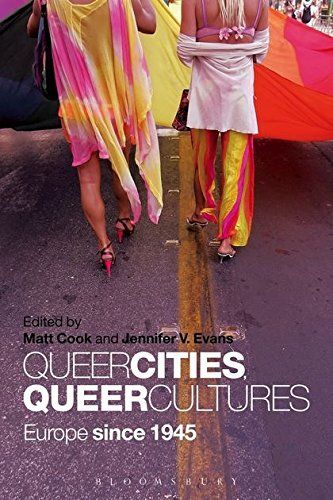
Queer Cities, Queer Cultures Europe since 1945
Queer Cities, Queer Cultures examines the formation and make-up of urban subcultures and situates them against the stories we typically tell about Europe and its watershed moments in the post 1945 period. The book considers the degree to which the iconic events of 1945, 1968 and 1989 influenced the social and sexual climate of the ensuing decades, raising questions about the form and structure of the 1960s sexual revolution, and forcing us to think about how we define sexual liberalization - and where, how and on whose terms it occurs. An international team of authors explores the role of America in shaping particular forms of subculture; the significance of changes in legal codes; differing modes of queer consumption and displays of community; the difficult fit of queer (as opposed to gay and lesbian) politics in liberal democracies; the importance of mobility and immigration in modulating queer urban life; the challenge of AIDS; and the arrival of the internet. By exploring the queer histories of cities from Istanbul to Helsinki and Moscow to Madrid, Queer Cities, Queer Cultures makes a significant contribution to our understanding of urban history, European history and the history of gender and sexuality.